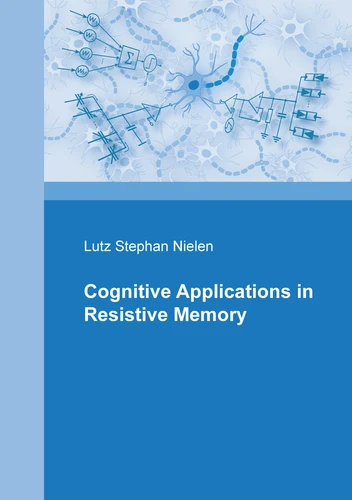Cognitive Applications in Resistive Memories
Par :Formats :
Disponible dans votre compte client Decitre ou Furet du Nord dès validation de votre commande. Le format PDF est :
- Compatible avec une lecture sur My Vivlio (smartphone, tablette, ordinateur)
- Compatible avec une lecture sur liseuses Vivlio
- Pour les liseuses autres que Vivlio, vous devez utiliser le logiciel Adobe Digital Edition. Non compatible avec la lecture sur les liseuses Kindle, Remarkable et Sony
 , qui est-ce ?
, qui est-ce ?Notre partenaire de plateforme de lecture numérique où vous retrouverez l'ensemble de vos ebooks gratuitement
Pour en savoir plus sur nos ebooks, consultez notre aide en ligne ici
- Nombre de pages172
- FormatPDF
- ISBN978-3-7519-8895-7
- EAN9783751988957
- Date de parution27/08/2020
- Protection num.Digital Watermarking
- Taille7 Mo
- Infos supplémentairespdf
- ÉditeurBooks on Demand
Résumé
The upcoming trends in information technology follow irresistibly the predicted changes of the Internet of Things (IoT). That requires enhanced performance of mobile electronics, thus memory techniques face a growing number of challenges. Redox-based resistive switches (ReRAM) are highly attractive devices for implementation of ultimately-scaled energy-efficient memories.
In this thesis, associative memories and sorting networks based on resistive switches are investigated.
These cognitive functions highlight the potential of brain inspired computing in memory and are considered as a key-enabler for beyond von-Neumann computer architectures.
These cognitive functions highlight the potential of brain inspired computing in memory and are considered as a key-enabler for beyond von-Neumann computer architectures.
The upcoming trends in information technology follow irresistibly the predicted changes of the Internet of Things (IoT). That requires enhanced performance of mobile electronics, thus memory techniques face a growing number of challenges. Redox-based resistive switches (ReRAM) are highly attractive devices for implementation of ultimately-scaled energy-efficient memories.
In this thesis, associative memories and sorting networks based on resistive switches are investigated.
These cognitive functions highlight the potential of brain inspired computing in memory and are considered as a key-enabler for beyond von-Neumann computer architectures.
These cognitive functions highlight the potential of brain inspired computing in memory and are considered as a key-enabler for beyond von-Neumann computer architectures.



